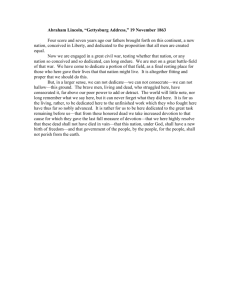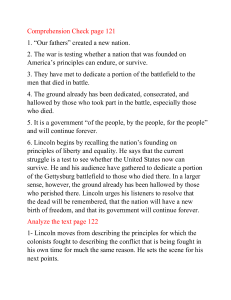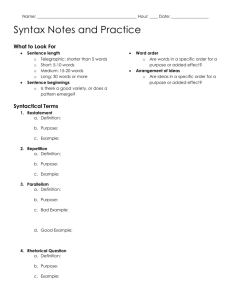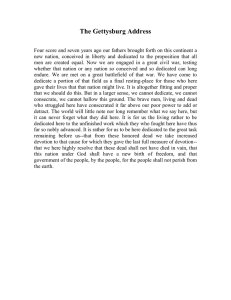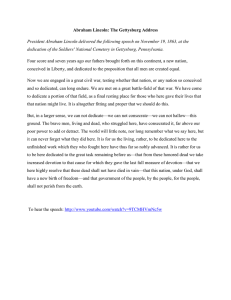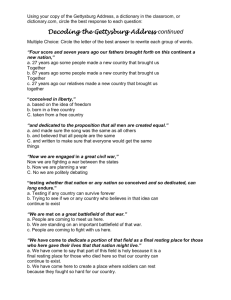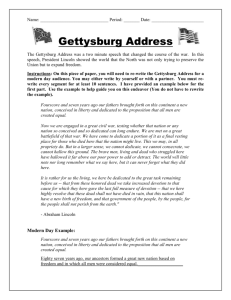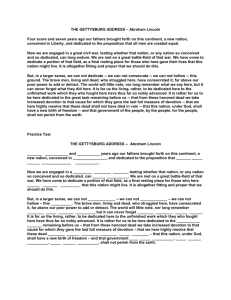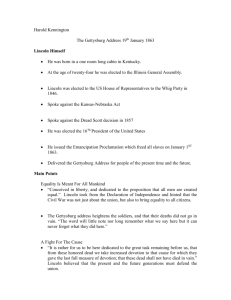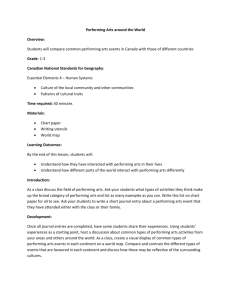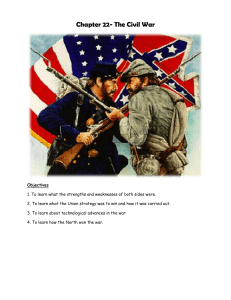Why the North Won the Civil War
advertisement
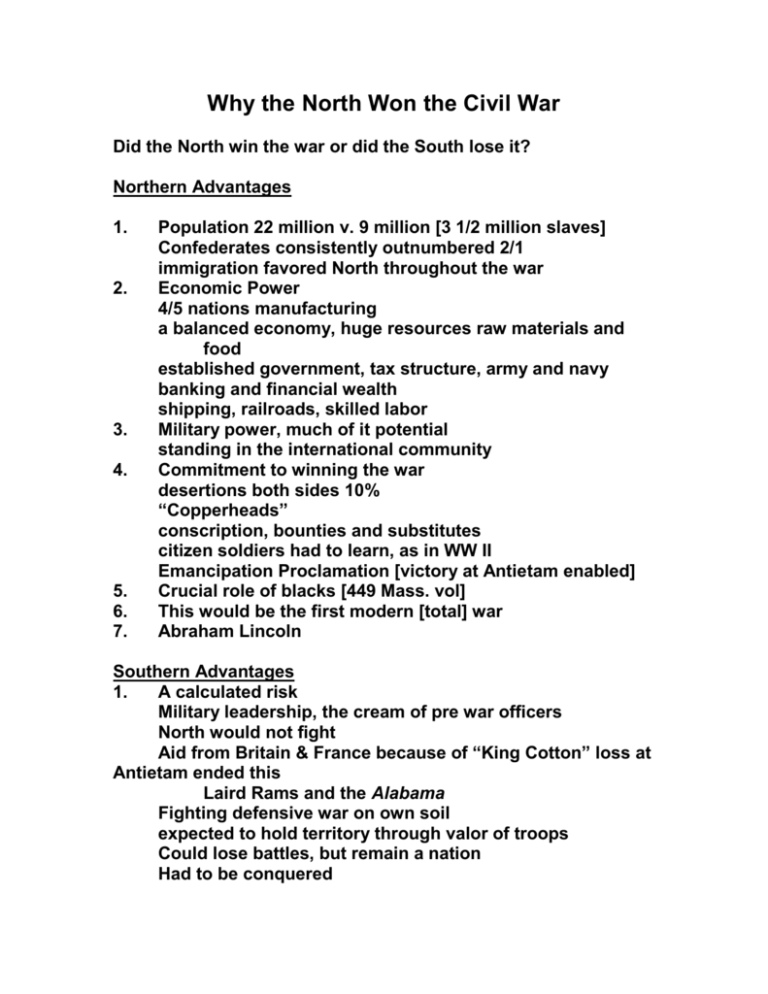
Why the North Won the Civil War Did the North win the war or did the South lose it? Northern Advantages 1. 2. 3. 4. 5. 6. 7. Population 22 million v. 9 million [3 1/2 million slaves] Confederates consistently outnumbered 2/1 immigration favored North throughout the war Economic Power 4/5 nations manufacturing a balanced economy, huge resources raw materials and food established government, tax structure, army and navy banking and financial wealth shipping, railroads, skilled labor Military power, much of it potential standing in the international community Commitment to winning the war desertions both sides 10% “Copperheads” conscription, bounties and substitutes citizen soldiers had to learn, as in WW II Emancipation Proclamation [victory at Antietam enabled] Crucial role of blacks [449 Mass. vol] This would be the first modern [total] war Abraham Lincoln Southern Advantages 1. A calculated risk Military leadership, the cream of pre war officers North would not fight Aid from Britain & France because of “King Cotton” loss at Antietam ended this Laird Rams and the Alabama Fighting defensive war on own soil expected to hold territory through valor of troops Could lose battles, but remain a nation Had to be conquered Men conditioned to outdoor life, martial traditions An agricultural economy, transport poor, troops consistently lacked food and equipment Hurt by states’ rights theories Lost control of the Mississippi Valley The South might have won if. . . . . . 1. Border states had seceded ]Md, Kent, Missouri, Delaware, W Vir] 2. War weariness in North had been stronger Election of 1864 a key after Atlanta falls 3. Britain & France had intervened 4. Certain battles had gone the other way Joshua Lawrence Chamberlain at Gettysburg] 5. Bad crops in Europe led to need for Northern food 6. South had been more united If the South had won the war. . . . . 1. With two nations on the continent, continued conflict slavery and fugitive slaves, moral imperative remains 2. Future wars over territories [New Mex, Ariz, California] 3. Wars of conquest to the South [Mexico, Caribbean] 4. Slavery is adapted to factories as South industrializes 5. U S spends energy fighting “itself”, doesn’t become a world power 6. Continent splits into may nations [Balkanization] 7. Border states become battlegrounds 8. Growth of both nations retarded 9. North eventually “conquers” the south economically Was the outcome of the Civil War determined on the battlefield? President Lincoln's First Inaugural Address, March 4, 1861 “This country, with its institutions, belongs to the people who inhabit it. Whenever they shall grow weary of the existing Government, they can exercise their constitutional right of amending it or their revolutionary right to dismember or overthrow it. I can not be ignorant of the fact that many worthy and patriotic citizens are desirous of having the National Constitution amended…. In your hands, my dissatisfied fellow-countrymen, and not in mine, is the momentous issue of civil war. The Government will not assail you. You can have no conflict without being yourselves the aggressors. You have no oath registered in heaven to destroy the Government, while I shall have the most solemn one to ''preserve, protect, and defend it. I am loath to close. We are not enemies, but friends. We must not be enemies. Though passion may have strained it must not break our bonds of affection. The mystic chords of memory, stretching from every battlefield and patriot grave to every living heart and hearthstone all over this broad land, will yet swell the chorus of the Union, when again touched, as surely they will be, by the better angels of our nature.” President Lincoln's Gettysburg Address, 1863 Four score and seven years ago our fathers brought forth on this continent, a new nation, conceived in Liberty, and dedicated to the proposition that all men are created equal. Now we are engaged in a great civil war, testing whether that nation or any nation so conceived and so dedicated, can long endure. We are met on a great battlefield of that war. We have come to dedicate a portion of that field, as a final resting place for those who here gave their lives that that nation might live. It is altogether fitting and proper that we should do this. But, in a larger sense, we can not dedicate—we can not consecrate—we can not hallow—this ground. The brave men, living and dead, who struggled here, have consecrated it, far above our poor power to add or detract. The world will little note, nor long remember what we say here, but it can never forget what they did here. It is for us the living, rather, to be dedicated here to the unfinished work which they who fought here have thus far so nobly advanced. It is rather for us to be here dedicated to the great task remaining before us—that from these honored dead we take increased devotion to that cause for they which gave the last full measure of devotion—that we here highly resolve that these dead shall not have died in vain— that this nation, under God, shall have a new birth of freedom—and that government of the people, by the people, for the people, shall not perish from the earth. Living Documents in American History (ed. John A. Scott, Vol. II, p. 646)
